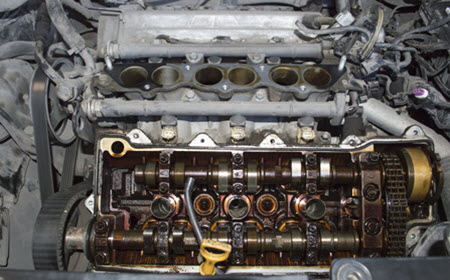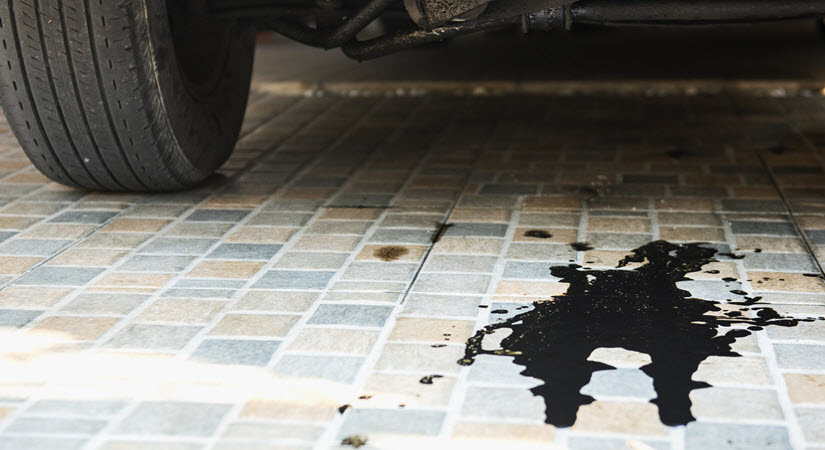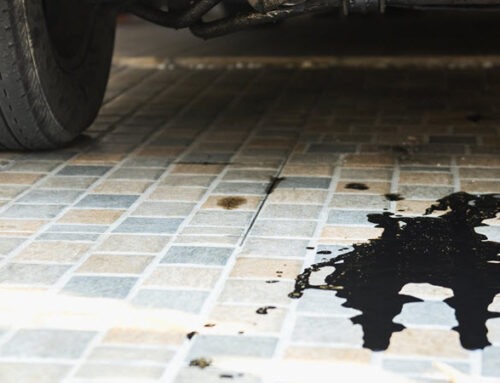The valve cover gasket in your Volkswagen’s engine is a thin rubbery sheet that sits snugly between the top of the engine (where all the moving parts are) and the valve cover (the protective lid on top). This component has a major role to play which is to seal the opening between your car’s engine and valve cover and keep the oil that is inside the engine where it belongs.
The gasket is made with materials like silicone or rubber. These materials are very flexible and they are used to tightly seal the components even when the temperatures inside your engine are high. Without the gasket, oil will leak out and create a mess under the hood and this can make your engine run rough or overheat.
Reason Your Valve Cover Gasket Fails
- Age and Wear: Imagine using a piece of elastic every day to tie your hair back. Over time, it stretches, gets loose, or even snaps. The same happens with the valve cover gasket in your car. It’s made of material that can wear out after being used for a long time, causing it to fail.
- Extreme Temperatures: Think about what happens to a chocolate bar when you take it out of the fridge and leave it in the sun; it melts and then hardens again when cooled. Your car’s engine experiences similar temperature changes, which can cause the gasket to expand and shrink. Over time, this can lead to cracks or breaks, much like how the chocolate bar cracks when you try to bend it after it cools down.
- Improper Installation: Putting in a valve cover gasket is like fitting a puzzle piece. If it doesn’t sit perfectly in its place, or if the bolts holding it are screwed in too tight or not tight enough, it won’t seal properly. This can lead to leaks, much like how water can seep out of a poorly sealed water bottle.
- Oil Contamination: Your car’s engine can suffer when the oil gets dirty. Over time, contaminated oil can damage the gasket material, making it less effective at sealing.
- Over-tightened Bolts: When the bolts on the valve cover are tightened too much, it squishes the gasket beyond what it’s designed to handle, causing leaks over time.
- Engine Pressure: Think of the engine like a balloon. Blowing too much air into a balloon increases the pressure inside until it finds a weak spot to escape. Similarly, if there’s too much pressure building up inside the engine, it can force oil out through any weak spots in the gasket, causing leaks.
How Can You Deal With This Gasket Leak?
- Spot the Signs: First, notice if your car is leaving oil spots where it’s parked or if the engine is losing oil faster than normal. These can be clues that the valve cover gasket needs attention.
- Check It Out: If you’re up for a bit of detective work, pop open the hood and look for the valve cover (it’s a large, flat component sitting on top of the engine). If you see oil around it, that’s a clue the gasket might be failing.
- Get It Fixed: If the gasket is the culprit, having it replaced is the way to go. Your mechanic can handle this, swapping out the old, leaky gasket for a new one that’ll keep oil inside where it belongs.
- Regular Checks: After it’s fixed, keeping an eye on your car for any future oil leaks can help catch any new issues early. Regular maintenance checks are like regular doctor visits—they keep your car healthy.
Let Our Expert VW Mechanics Help You With Your Repairs And Maintenance
At Fifth Gear Automotive, we’re here to help.  Our team is made up of highly qualified mechanics who are experts in all things VW. If you’re in or around Lewisville, Argyle, McKinney, TX, and facing any trouble with your Volkswagen, especially if it’s something like a valve cover gasket failure, we’re ready to assist.
Our team is made up of highly qualified mechanics who are experts in all things VW. If you’re in or around Lewisville, Argyle, McKinney, TX, and facing any trouble with your Volkswagen, especially if it’s something like a valve cover gasket failure, we’re ready to assist.
Don’t let car problems stress you out. Come to us for reliable VW gasket replacement and any other car maintenance needs. Book your appointment now and let us take care of your car troubles.







